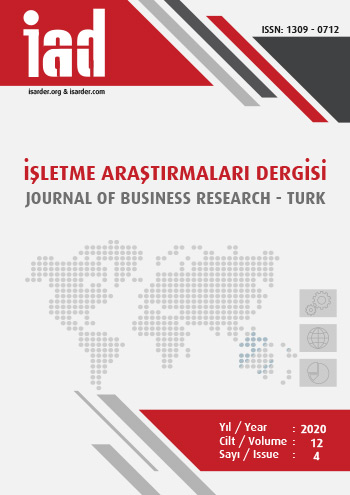Duygusal Emek ve Hizmet Vermeye Yatkınlık Durumu Arasındaki İlişki: Konaklama Sektörü
The Relationship between Emotional Labor and Service Orientation: Hospitality Sector
Author(s): Ebru GözenSubject(s): Business Economy / Management, Social psychology and group interaction, Organizational Psychology, Marketing / Advertising, Tourism
Published by: Orhan Sağçolak
Keywords: Emotional Labor; Service Orientation; Canonical Correlation Analysis;
Summary/Abstract: Purpose – Due to the unique features of the hospitality industry, it is an important issue that people who want to work in this sector have a personality structure that is prone to service and can display their emotions in accordance with their business policies and strategies. In this study, it is aimed to examine the relationship between emotional labor and service orientation. Design/methodology/approach – In accordance with purpose, the relational screening model was used in the research. The study group of the research consists of 328 employees working in 5 star accommodation establishments in Manavgat district of Antalya. In the study, the relationship between emotional labor data set consisting of superficial role playing, deep role playing and natural emotions variables and service orientation variables consisting of enjoying service and meeting service needs were examined by canonical correlation analysis. Findings – As a result of canonical correlation analysis, a significant relationship was found between emotional labor and service orientation, and the common variance shared between data sets was 14%. Discussion – As a result of the research, it is concluded that as the employees’ tendency to provide services increases, their emotional labor level will increase to. At the same time, it can be said that the contribution of the superficial role-playing variable to the emotional labor data set is more important than the contribution of the role -playing and natural behavior variables to the emotional labor data set. It was observed that the contribution of the pleasure to serve variable to the service orientation data set is partly more important, although it is almost the same as the contribution of the variable to meet the service needs to the service orientation data set.
Journal: İşletme Araştırmaları Dergisi
- Issue Year: 12/2020
- Issue No: 4
- Page Range: 3795-3812
- Page Count: 18
- Language: Turkish

